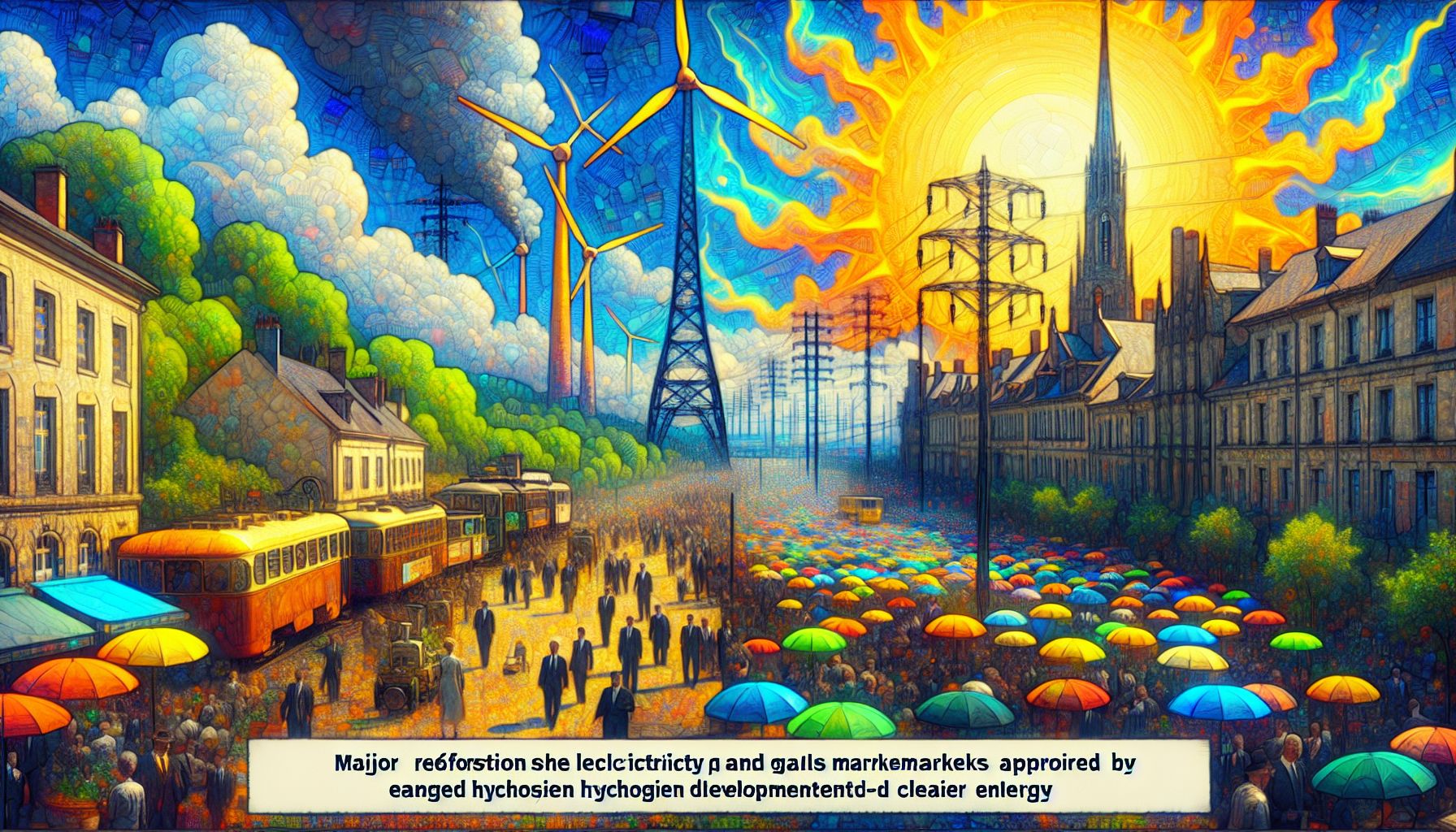EU Approves Major Reforms to Boost Clean and Secure Energy

The European Commission has approved significant reforms in electricity and gas markets to enhance hydrogen development and ensure stable, clean energy, benefiting consumers and reducing fossil fuel dependency.
Enhanced Consumer Protections and Options
Under the new reforms, consumers across the European Union can expect a variety of benefits designed to enhance stability and provide more choices in their energy consumption. Key changes include the ability to choose from a wider range of contracts and receive clearer information before signing. Consumers will also have the option to lock in long-term, secure prices, helping to shield them from volatile energy markets. Additionally, dynamic pricing contracts will allow consumers to take advantage of lower prices during off-peak periods, potentially reducing their overall energy costs[1].
Support for Vulnerable Populations
The reforms also include measures to protect vulnerable populations from disconnection and ensure continuous access to electricity. The establishment of ‘suppliers of last resort’ will provide a safety net for consumers who lose their energy provider. Furthermore, the reforms will enable energy sharing, such as allowing tenants to share surplus rooftop solar power with their neighbors, thereby fostering community-based energy solutions[1].
Boosting Business Competitiveness
European businesses are set to benefit from more predictable energy costs, which will enhance their competitiveness in the global market. The reforms will allow companies to benefit from lower renewable energy costs and provide the flexibility to extend regulated retail prices during crises, ensuring stability and affordability. This predictability is crucial for businesses planning long-term investments and operational strategies[1].
Creation of a Hydrogen Market
One of the most significant aspects of the new regulatory framework is the creation of a dedicated market for hydrogen. Hydrogen is seen as a key component in reducing emissions from heavy industries and transportation sectors. The new framework facilitates easier switching of gas suppliers, effective price comparison tools, and transparent billing, making hydrogen a more accessible and viable option for businesses and consumers alike. Additionally, the reforms empower EU countries to limit or halt imports of piped gas and Liquified Natural Gas (LNG) from Russia and Belarus, enhancing energy security and independence[1].
Impact on Renewable Energy Growth
The reforms align with the broader goals of the European Green Deal, which aims to cut greenhouse gas emissions by at least 55% by 2030 and achieve climate neutrality by 2050[5]. Renewable energy sources like solar, wind, and hydropower are expected to play a crucial role in this transition. From 2011 to 2021, renewable energy’s share of global electricity supply grew from 20% to 28%, with solar and wind power leading this growth[3]. The new market regulations are expected to further accelerate this trend, promoting investments in renewable energy infrastructure and technologies.
Global Context and Future Outlook
The International Energy Agency (IEA) highlights that accelerating the transition to clean energy technologies can lead to significant cost savings and improved energy affordability globally. By 2035, electricity is projected to overtake oil as the leading fuel source, contributing to a more predictable and affordable energy system for consumers[4]. The EU’s reforms are a step in this direction, promoting a secure, sustainable, and economically viable energy future for Europe. The ongoing commitment to renewable energy and hydrogen infrastructure will be crucial in achieving these long-term goals and combating climate change[2].

